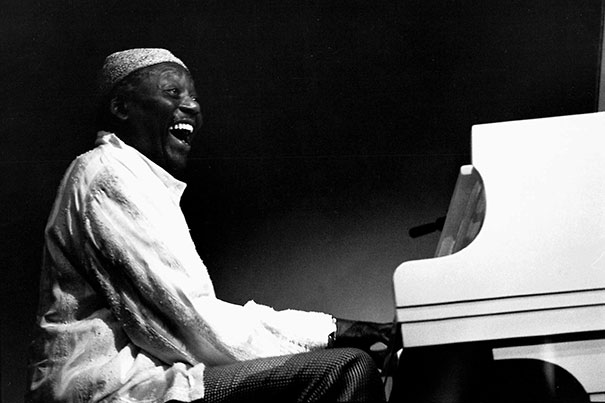
“When Randy Weston plays, a combination of strength and gentleness, virility and velvet, emerges from the keys in an ebb and flow of sound seemingly as natural as the waves of the sea,” Langston Hughes said.
Courtesy of Randy Weston
The sweep of jazz history
Pianist and composer Randy Weston visits campus on the eve of Harvard acquiring his personal archive
The legendary jazz pianist and composer Randy Weston spent a lifetime using music to tell stories that crossed cultures and continents. On Wednesday, Harvard will honor the 90-year-old for his extraordinary body of work and the University’s acquisition of his personal archive during a celebration at Agassiz Theater.
“Man, how did I get here?” the spirited entertainer said during a phone call from his New York home last week. “When I trace my life and the musicians I’ve played with — I’m so blessed. I’ve met almost everyone in my life through music.”
Weston’s archive reads as a “Who’s Who” of jazz greats, literary luminaries, pioneering performers, and social activists. In one breath, Weston ticked off collaborations with Duke Ellington, Dizzy Gillespie, Melba Liston, and John Lee Hooker, then recalled meeting Marshall W. Stearns, his correspondence with Langston Hughes (whose poem inspired Weston’s 1960 landmark album “Uhuru Afrika”), and his travels to Nigeria with Nina Simone as part of a U.S. delegation.
Jazz pianist Randy Weston at Harvard
“I felt perfectly at home in Africa,” recalled Weston, who grew up in the Bedford-Stuyvesant neighborhood of Brooklyn, where his father taught him a deep love for his ancestral roots and an appreciation for collecting journals and historical papers. “It was like I had never left.”
His time in Africa is one compelling aspect of the archive that Ingrid Monson, the Quincy Jones Professor of African-American Music, is particularly excited to use in her own research and in teaching future courses.
“He is one of the key people to link jazz and Africa. He ran a jazz club in Morocco for many years, and worked with many African musicians there. I knew in these materials there would be a lot of things documenting that time. When Sarah Adams [the Richard F. French Librarian of the Eda Kuhn Loeb Music Library] and I went to look at the archive, it was astonishing, and extremely well-organized. There are materials about him, but also jazz as a whole,” she said.
Image gallery
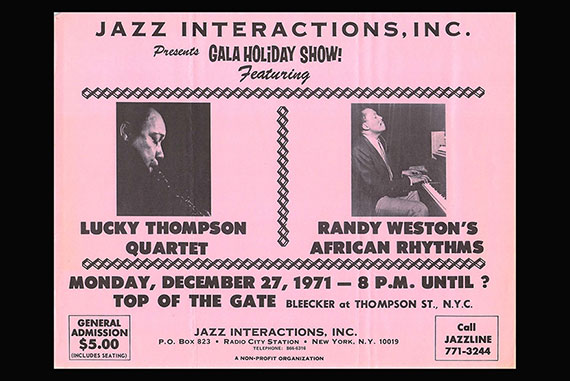
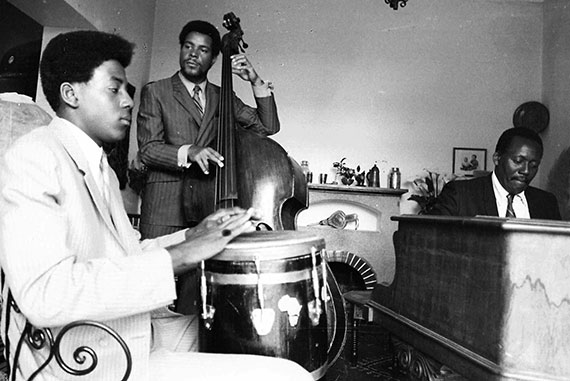
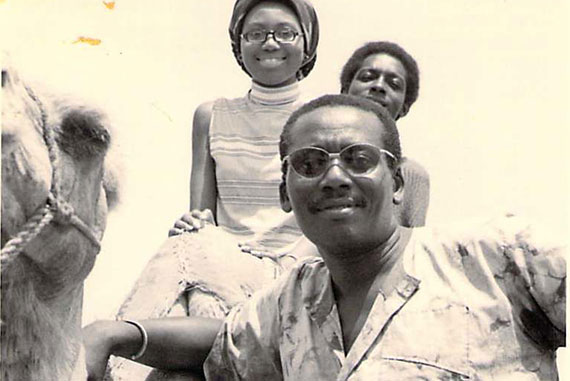
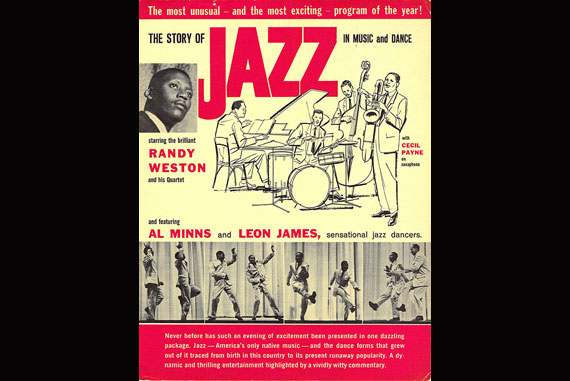

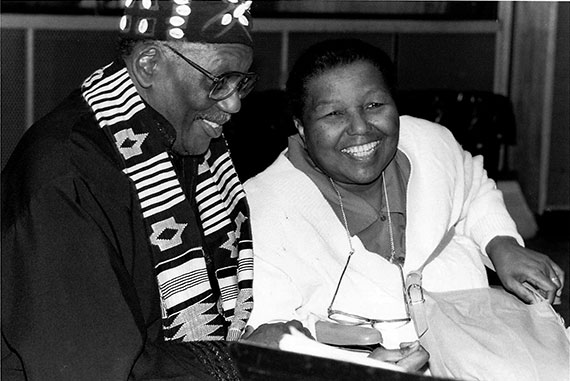
The Weston archive, which includes an estimated 300 manuscript scores and 1,300 audio and visual media, will reside in the Music Library and will be available to the public. It marks the first archival collaboration among the Jazz Research Initiative, the Hutchins Center for African and African American Research, the dean of the Faculty of Arts and Sciences, and the Harvard Library.
“When Ingrid brought this as a proposal, I could see why it was of interest to her and of greater interest to Harvard. It’s a very deep archive that has multidisciplinary implications,” Adams said. “The archive offers such a detailed picture of the jazz world over a long period of time. I have the sense that he had, from early on, a sense of history and his place in it — his connection to ancestors, the places he’s been, and the people he’s been connected to.”
The visit is a coming home of sorts for Weston, who feels connected to the University and to Massachusetts. As a young man, he worked as a dishwasher and landscaper in the Berkshires (“I got my first traffic ticket in Pittsfield”), and he performed with the Boston Symphony Orchestra in 1981. He recorded Count Basie’s “Harvard Blues” in 1993 with Johnny Copeland singing the George Frazier (’32) lyrics about social life on campus.
“I’ve always loved this piece,” said Weston, who came to campus in 1999 when he took the stage with Tom Everett and the Harvard Jazz Band as part of the Office for the Arts’ Learning from Performers program.
These days, the pace of his performance schedule moves only slightly slower than it did in decades past, and his hands are ever nimble. Along with a performance Wednesday with his African Rhythms Quintet, the elder jazz statesman will also play the role of scholar, speaking about life on a global music stage and the social history he witnessed.
“He’s a natural-born teacher,” said Adams. “He loves to share, and having him available to put his archive in context is as amazing as the archive itself.”
Harvard will celebrate Weston and the acquisition of his archive at 7 p.m. on Wednesday in the Horner Room in Agassiz Theater. Admission is free, but tickets, available through the Harvard Box Office, are required. 617-496-2222.




